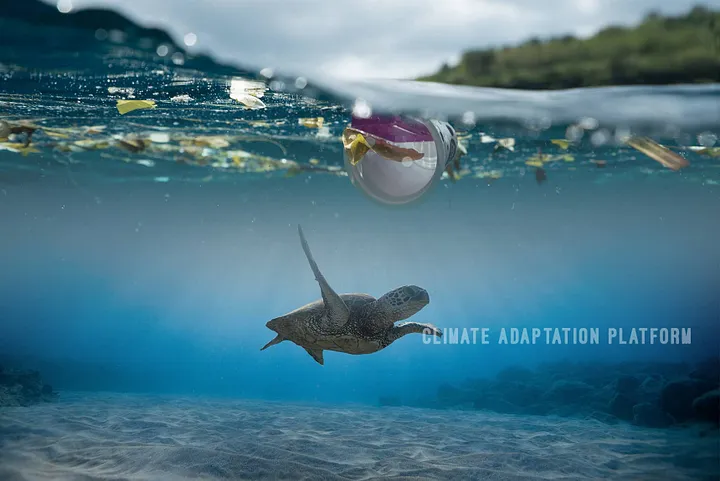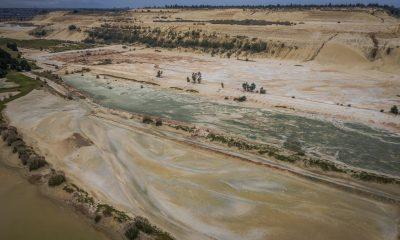411
Global Decline in Ocean Productivity Threatens Marine Ecosystems and Fisheries

Ocean productivity has been on the decline worldwide for the past three decades, with significant consequences for marine biodiversity, fisheries, and the planet’s climate regulation systems.
Ocean productivity refers to the amount of food and energy produced by the ocean to sustain marine life, and it plays a crucial role in regulating the global climate.
A new study led by the Council for Scientific and Industrial Research (CSIR), based on 26 years of satellite data, reveals that climate models have underestimated the global decline in ocean productivity due to ocean warming. The study, co-led by Dr. Tommy Ryan-Keogh and Dr. Sandy Thomalla from CSIR, along with Professor Alessandro Tagliabue from the University of Liverpool, analyzes decades of remote sensing data and compares contemporary trends with future projections from climate models.
Ryan-Keogh emphasized the importance of ocean productivity, which supports ecosystems such as fisheries and produces nearly half of the world’s oxygen through phytoplankton. These microscopic plants help regulate global climate by converting carbon dioxide into oxygen. However, climate change threatens phytoplankton populations, and existing models offer conflicting predictions regarding future ocean productivity.
While some models predict an increase in ocean productivity, others suggest a decline. Thomalla noted that while productivity is not declining everywhere, when averaged across global oceans, a clear decline is evident. The study, titled Global Declines in Net Primary Production Underestimated by Climate Models, combined satellite data from 1998 to 2023 with climate model projections, revealing that even the best-ranking models predict a decline in ocean productivity.
“The models that best represent the relationship between productivity and environmental drivers predict future declines,” Ryan-Keogh explained. “However, we believe even these models underestimate the sensitivity of productivity declines to ocean warming.”
To address this, the researchers argue that future climate models need to account for greater declines in ocean productivity, even under high-mitigation scenarios that currently suggest stable ocean productivity by the end of the century.
Dr. David Glassom, a Marine Biology lecturer at the University of KwaZulu-Natal, warned that the effects of declining ocean productivity are already irreversible. While ocean productivity has been in decline for decades, Glassom noted that the impact will persist for generations. He highlighted that alongside ocean warming, factors like pollution, overfishing, and other human activities threaten marine life, impacting economies that rely on fishing.
“For small-scale fishers, the effects will be even more severe, as they may need to travel further or spend more time to catch enough fish, increasing costs and reducing income,” Glassom said.
To combat these challenges, immediate reductions in greenhouse gas emissions are essential. However, Glassom emphasized that the effects of emissions already released will persist for centuries. Short-term solutions include reducing local stressors on ocean habitats, such as pollution, and establishing more Marine Protected Areas (MPAs) to help fish populations recover. These areas can provide some resilience to climate change impacts.
Glassom also stressed the need for better monitoring and research to understand how declining ocean productivity affects ecosystems.
The global decline in ocean productivity poses a severe threat to marine life and human economies reliant on fishing. Immediate action to address greenhouse gas emissions, pollution, and habitat degradation is essential to mitigate the long-term impacts.
Follow Joburg ETC on Facebook, Twitter , TikTok and Instagram
For more News in Johannesburg, visit joburgetc.com



























